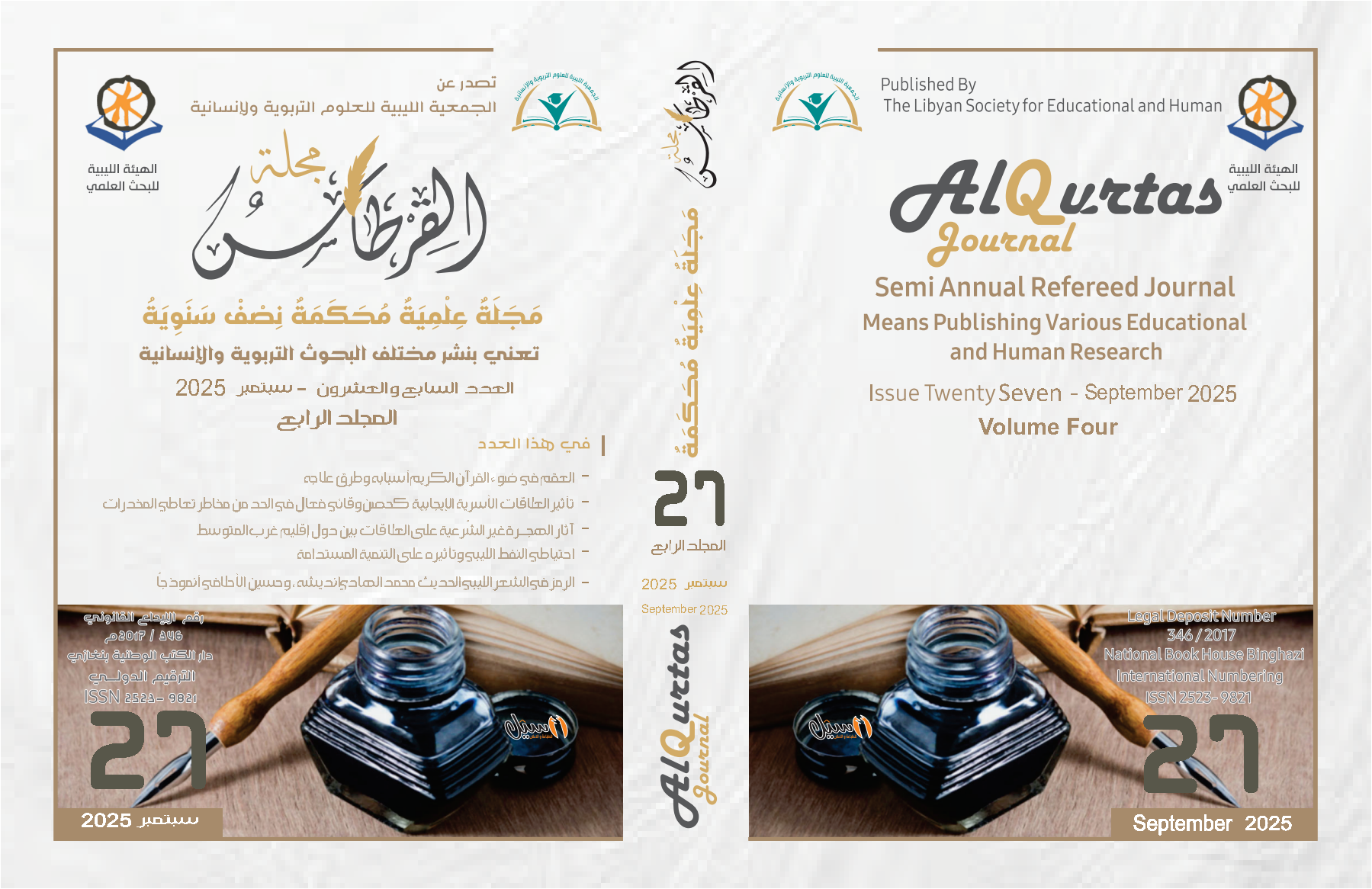Eddah and its rulings in the Islamic tradition - a comparative study between the four schools of thought
Main Article Content
Abstract
This research addresses the topic of 'Iddah (waiting period) and its rulings in Islamic jurisprudence. It is a comparative legal study based on the established positions of the four major Islamic schools of thought, prepared by Dr. Mohamed Hassan Alwan from Libya. The researcher begins by highlighting the importance of ‘iddah as one of the precise Shariah rulings that concern a woman’s life following the end of marriage due to divorce or death. It is often misunderstood or neglected by many Muslims today, leading to the spread of innovations and the loss of women's legal rights. The study aims to clarify the concept, legitimacy, and categories of ‘iddah, along with its conditions and consequences, emphasizing the need to adhere to rulings derived from the Qur’an and Sunnah, away from pre-Islamic traditions. The research is divided into three main sections: the first discusses the definition and legal foundation of ‘iddah; the second explains its conditions and causes; and the third details its types, including the ‘iddah of pregnancy, divorce, and widowhood. It also explores the implications of ‘iddah, such as the prohibition of remarriage, mourning requirements, housing, and financial maintenance. In conclusion, the researcher recommends promoting Islamic legal awareness, correcting misconceptions, and relying on authentic sources for proper understanding.
Downloads
Article Details

This work is licensed under a Creative Commons Attribution-NonCommercial 4.0 International License.

